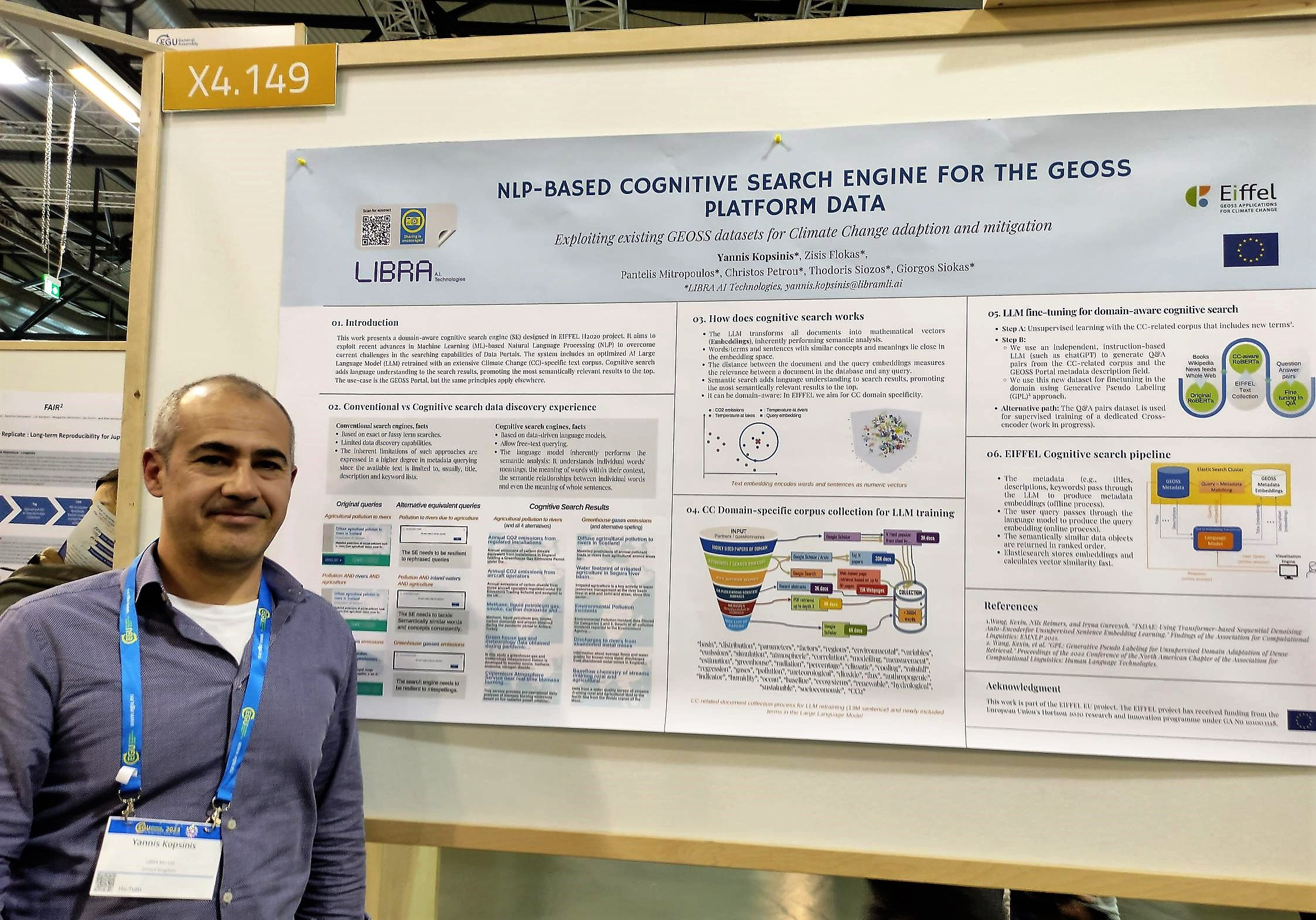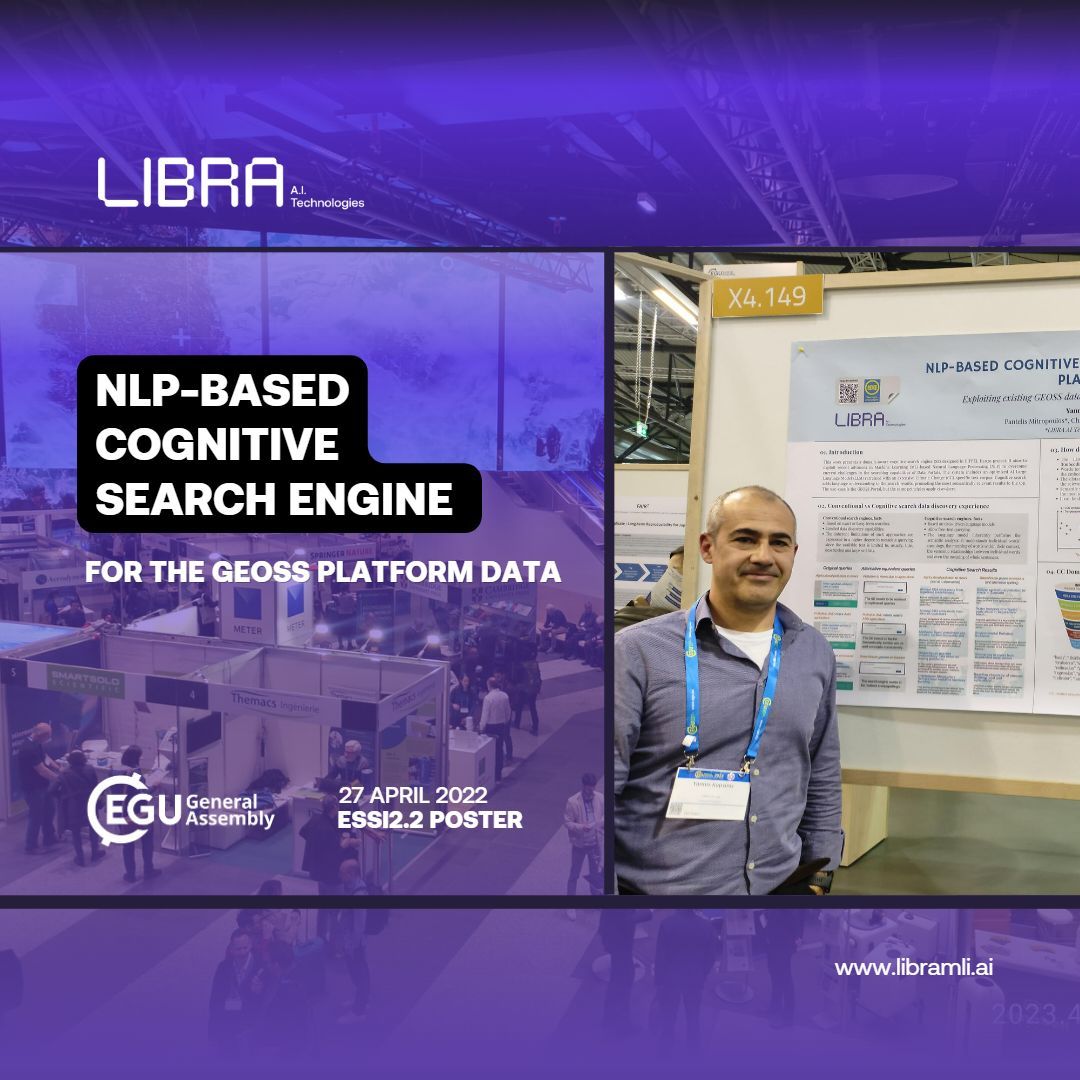Effectively querying unstructured text information in large databases is highly demanding. Conventional approaches, such as an exact match or fuzzy search, return valid and thorough results only when the user query adequately matches the wording within the text or the query is included in keyword-tag lists.
The GEOSS platform relies on conventional search tools for data and services exploration and retrieval, limiting its capacity. This is a challenge recent advances in Artificial Intelligence (AI)-based Natural Language Processing (NLP) try to surpass with enhanced information retrieval and cognitive search. Rather than relying on exact or fuzzy text matching, it detects documents that semantically and conceptually are close enough to the search query.
The EU-funded project EIFFEL aims to reveal the role of the GEOSS platform as the default Digital Portal for building Climate Change (CC) adaption and mitigation applications and offer the Earth Observation community the ground-breaking capacity to exploit existing GEOSS datasets.
LIBRA AI Technologies, as a major technological partner of the EIFFEL consortium, designed and developed a cognitive search engine optimised for the Climate Change domain. It is dedicated to GEOSS platform data but versatile enough to adjust to other domains and platforms.
The proposed system comprises a transformer-based Large Language Model (LLM) fine-tuned for climate change-related text and queries, a framework for collecting a sizable climate change-specific corpus used for LLM fine-tuning, a back-end that adopts modern database technologies with advanced capabilities for embedding-based cognitive search matching, and an open application programming interface (API).
The cognitive search component is the backbone of the EIFFEL visualisation engine, which allows any GEOSS user, as well as the EIFFEL Climate Change application developing teams, to detect GEOSS data objects and services that are of interest for their research and application. These GEOSS assets could not effectively get accessed with the available GEOSS Portal search engine, which relies on well-designed and implemented conventional search approaches. This proposed cognitive search engine is expected to enhance the capacity of Earth observation systems and data for informed decision-making.
The LIBRA AI Technologies CEO and Co-Founder, Dr Yannis Kopsinis, presented the above-described research work through a scientific poster presentation at the EGU General Assembly 2023, a highly prestigious event of the global geoscience community covering all disciplines of the Earth, planetary, and space sciences.

The poster presentation took place on Thursday, 27 April 2023, during ESSI2.2: “Data Spaces: Battling Environmental and Earth Science Challenges with Floods of Data”. LIBRA AI Technologies' participation in the EGU General Assembly 2023 was a great opportunity for the company to showcase its innovative approach to cognitive search and contribute to the broader conversation on how AI and LLMs can be exploited in geoscience.
Presentation Material
For more details, please find below links to the LIBRA AI presentation material.

